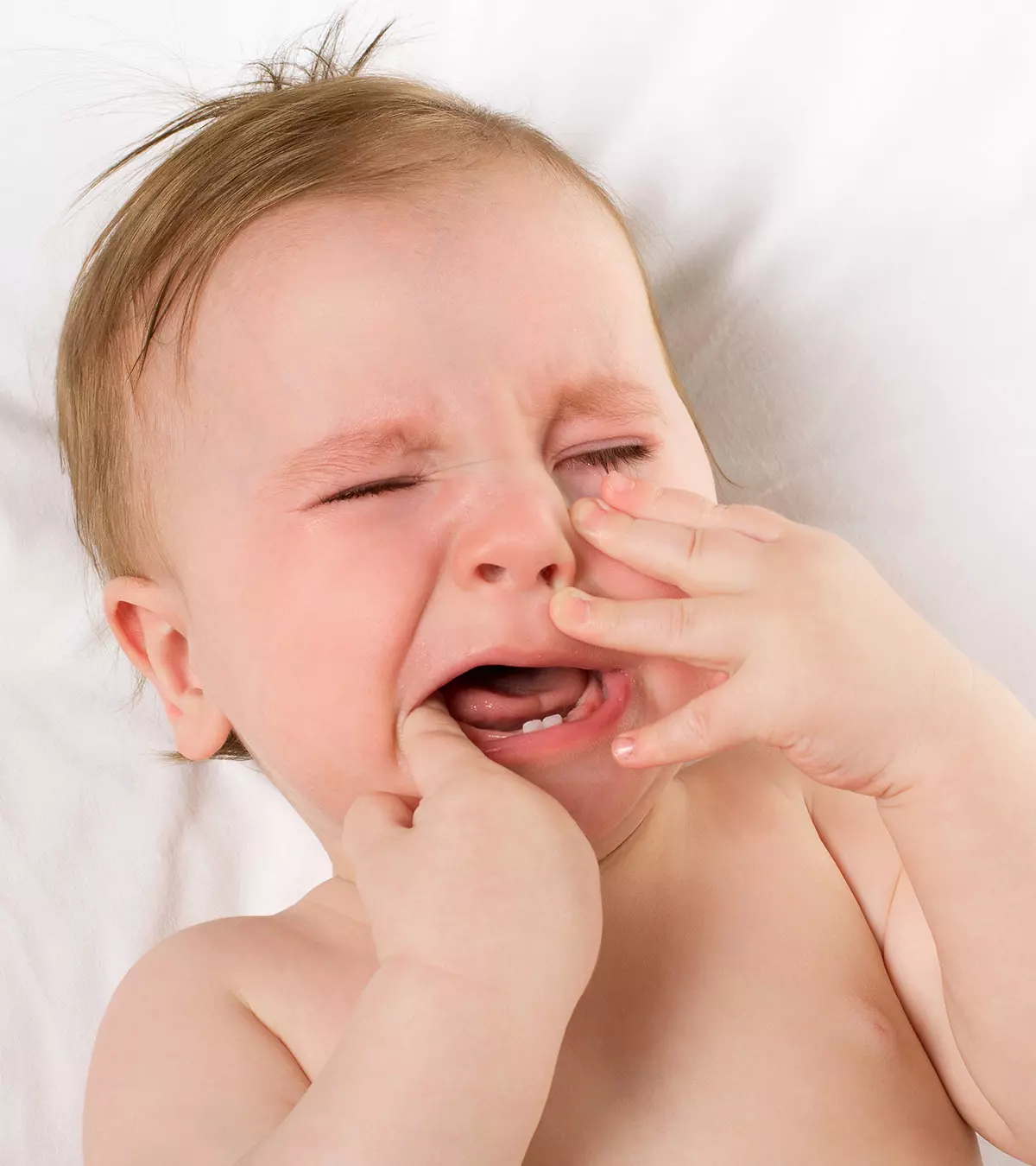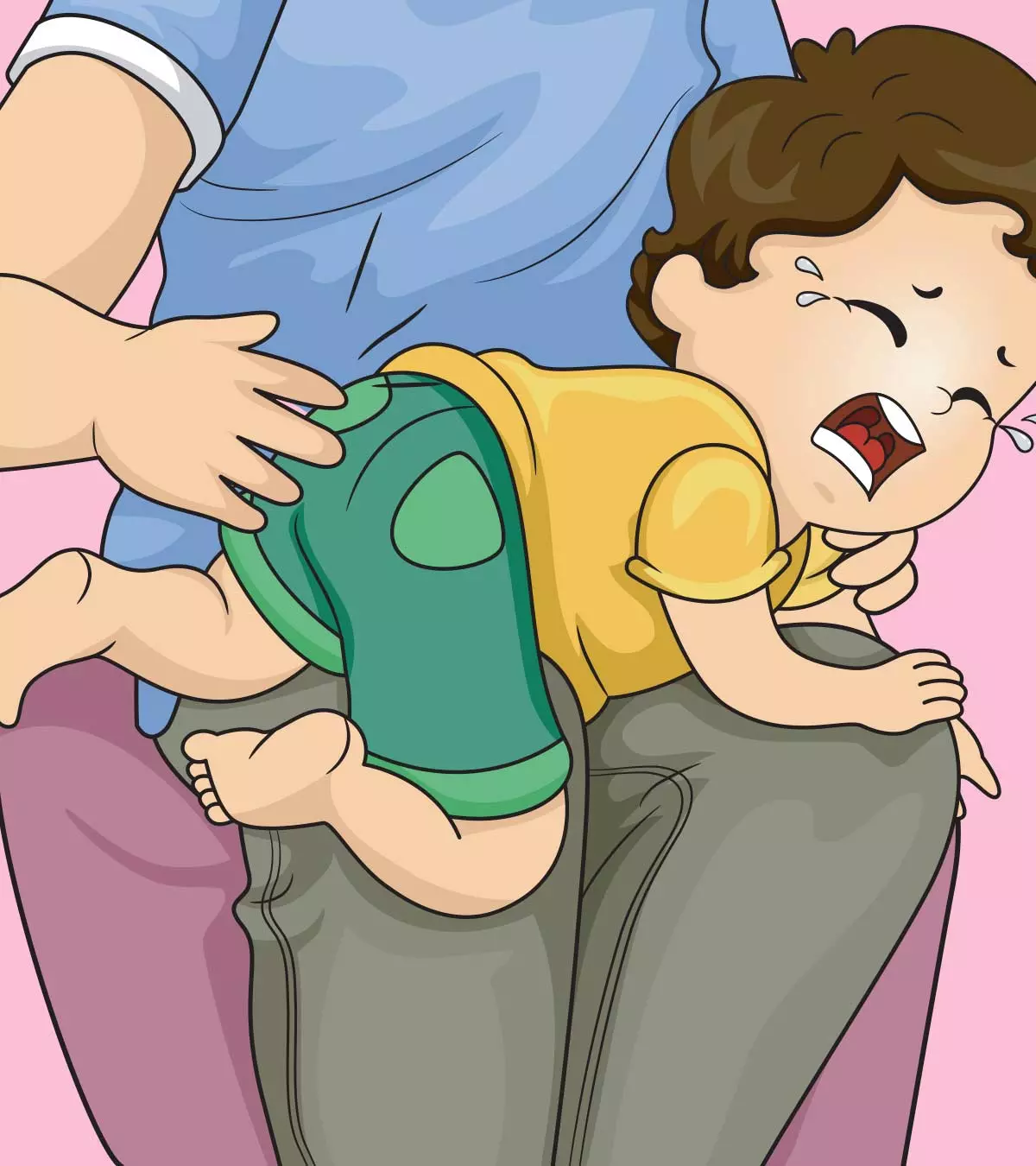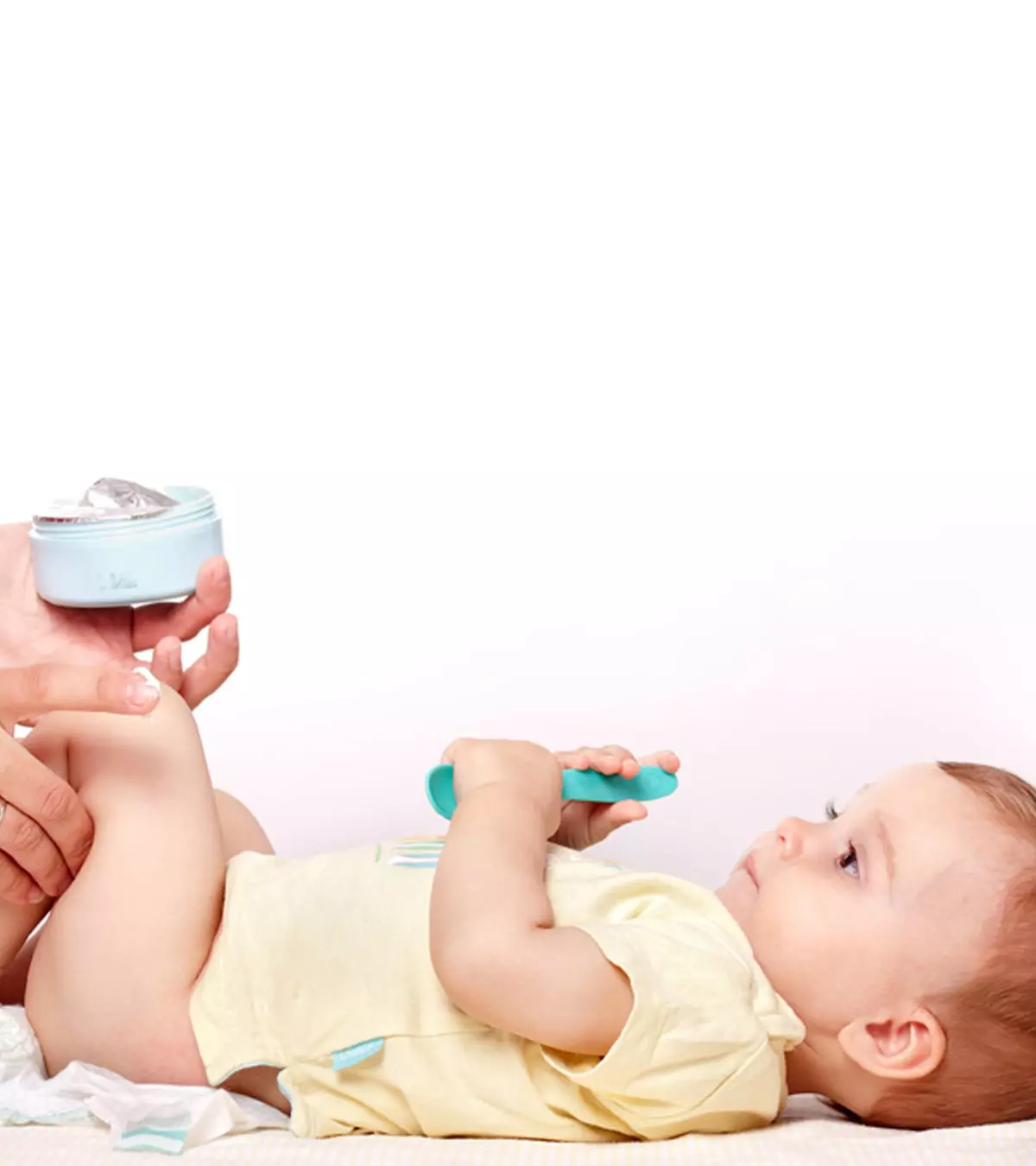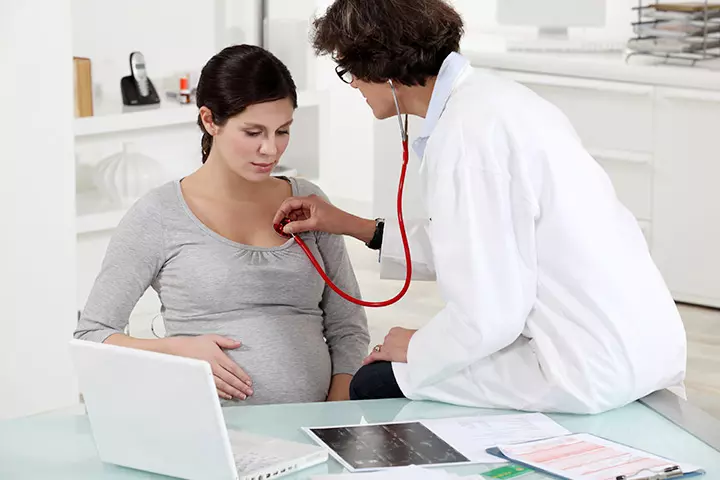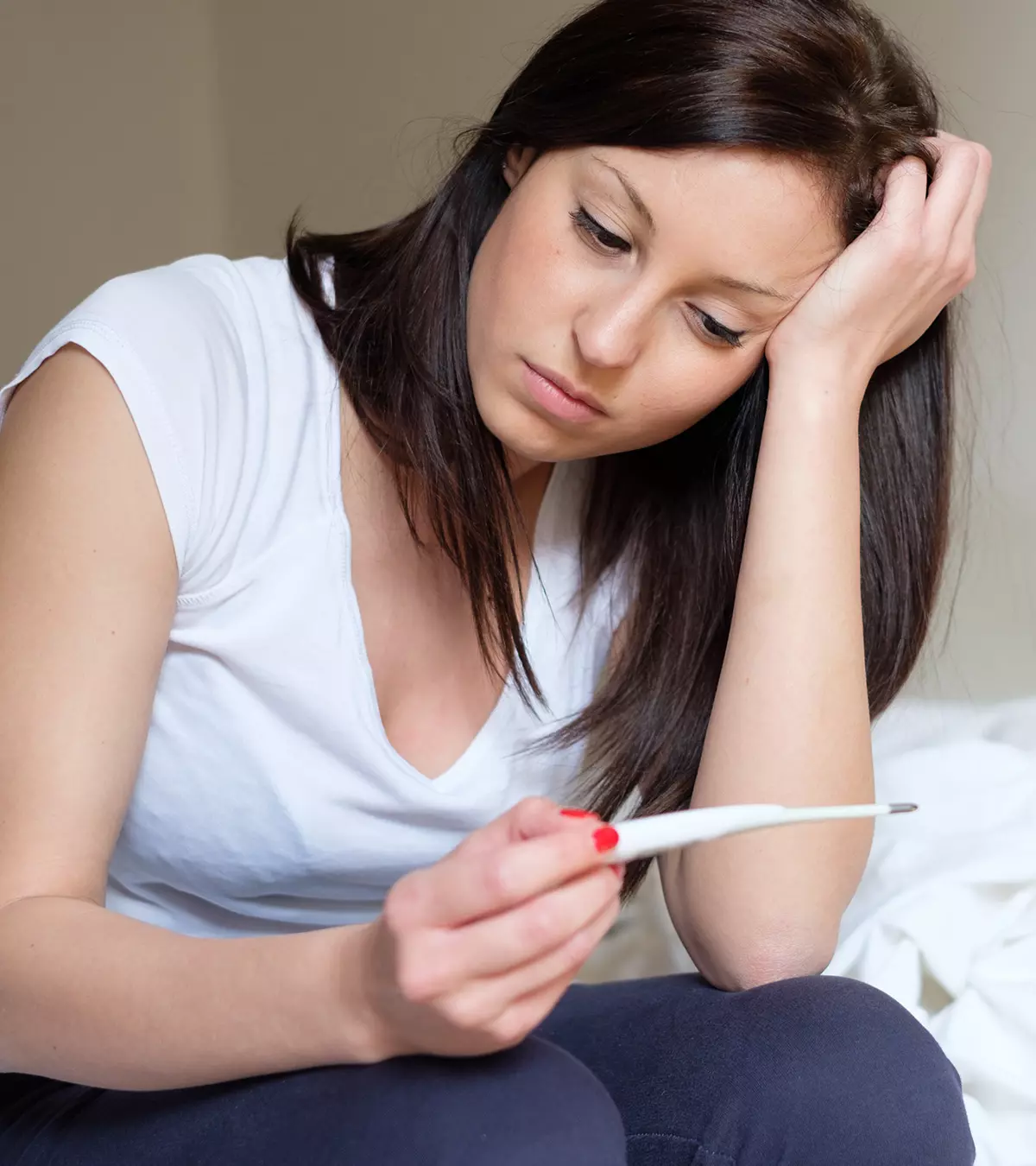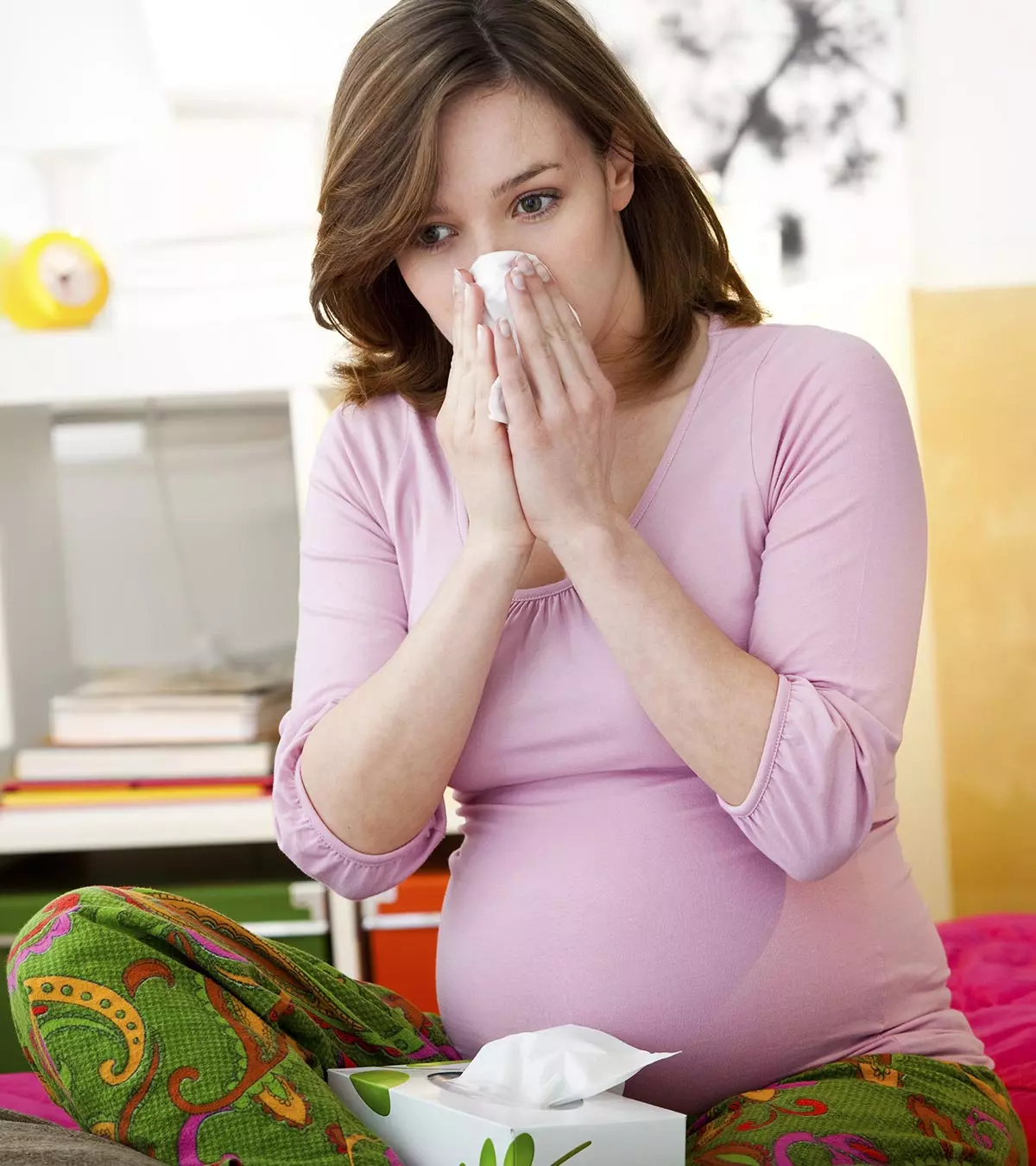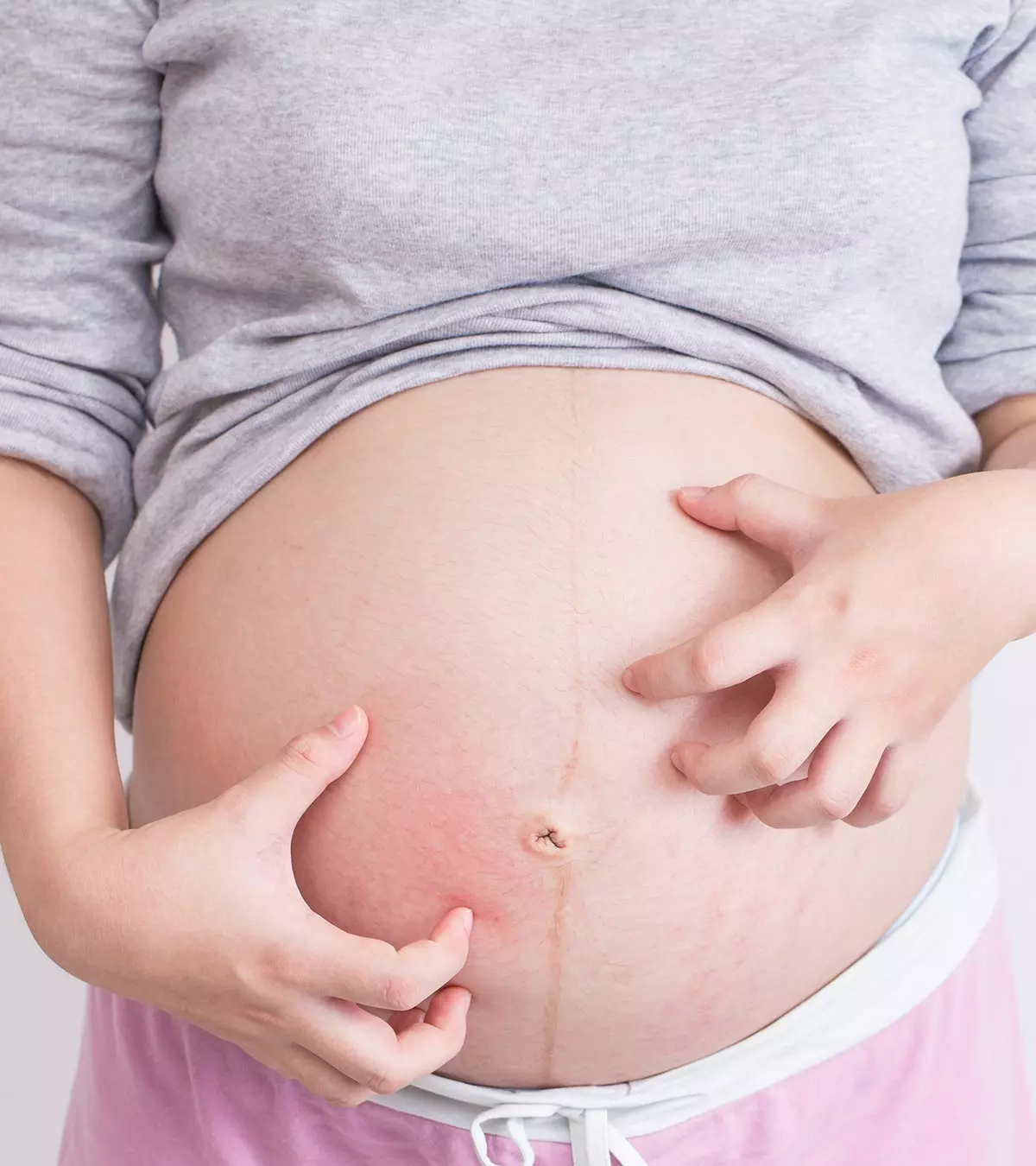
Itching is a common sensation during pregnancy. An itchy belly during pregnancy happens due to the stretching of the skin of your abdomen as the baby grows. Itchiness in the belly or pruritic abdomen is most common during the third trimester as the belly is the most expanded during this time. However, it might occur before that as well. Keep reading this post as we present you with the causes and a few treatment options for this condition.
Key Pointers
- Itching on the stomach is a common issue during pregnancy, especially during the last trimester.
- The causes of itching may be mild to severe, including stretching of skin, hormonal changes, and conditions such as prurigo and PUPPP.
- Applying moisturizing creams and avoiding hot weather and hot showers can help alleviate itching.
- Refraining from scratching the area excessively is vital to prevent skin damage and worsening of the condition.
- When itching is severe, a doctor may advise using topical ointments or oral medications for medical conditions.
Is It Normal To Have An Itchy Belly During Pregnancy?
It is quite normal for the growing belly to be itchy due to the stretching of the skin. In some cases, your breasts, palms, and soles might turn itchy too. This may be due to the hormonal changes and skin conditions that develop with progressing pregnancy (1). If the itching gets serious, you should immediately consult your healthcare practitioner.
Ashley Nicole, a mother and a content creator, shares her experience of itchy belly during her pregnancy. She says, “A belly that itches is something I have never experienced before… For me, it comes at the weirdest time. It hasn’t itched all day but I get home from work, shower, prepare dinner, sit down on the couch, pull up my tray to eat my dinner and the belly starts itching. Then it spreads to my sides and lower back and then to my arms. It spreads like wildfire! This continues for quite a while almost every night. I have heard it’s a common symptom because your belly is stretching to make room for the baby, so it makes your skin itch… but DANG! (i).’’
When Does Pregnancy Belly Start Itching?
An itchy belly might occur in the second trimester, i.e., between 13 and 28 weeks (2). But it could happen in the first or third trimester as well. Itching is likely to be prominent in the case of multiple pregnancy, as the skin may stretch more than it does in a regular pregnancy. Several women report experiencing itching in the area where the Linea Nigra appears. However, most women experience itching on the entire belly.
What Causes The Belly To Itch During Pregnancy?
Mild itching is common and might not be a concern. It usually happens due to these reasons (3).
- Expanding belly: Most often, an itch on the belly could be due to the growing uterus. The skin expands and stretches, becomes moisture-deprived, dries out, and might become itchy. Treating the dryness would solve the problem.
- Hormonal surges: Hormonal changes, especially the increase in estrogen levels, are another cause of the itching sensation on the stomach.
In some cases, abdominal allergy can also cause an itchy belly. When the belly skin comes in contact with an irritant or allergen, it can trigger an allergic reaction, causing itching, redness, and rash or urticarial eruption in the affected area.
Can An Itchy Belly Cause Problems To Pregnancy?
The stretching abdomen during pregnancy may often cause discomfort around the belly and cause the skin to itch. However, an itchy belly could sometimes be harmful, indicating serious medical conditions such as Pemphigoid Gestationis and Striae Gravidarum. Along with severe itching, rashes may develop in some cases.
1. Pruritic urticarial papules and plaques of pregnancy (PUPPP)
- PUPPP is a condition characterized by itchy red bumps on the pregnant belly and large patches of hives-like rashes.
- It is also called polymorphic eruption of pregnancy.
- These rashes could occur in the third trimester or the last five weeks of pregnancy, and sometimes after delivery too (4).
- The cause of PUPPP is unknown, and women carrying twins or more, and those carrying their first baby are more susceptible to it.
- Sometimes, PUPPP may spread out to other parts of your body, such as thighs, buttocks, back, arms, and legs. It could rarely spread to your face, neck, and hands.
- Your doctor may typically prescribe a topical ointment.
- If the intensity of the condition is high, antihistamine or oral steroids are recommended.
- PUPPP is harmless to the unborn baby and disappears after delivery (5).
2. Prurigo and pregnancy
- If you notice small eruptions that start as bug bites (and change into cuts as you scratch), you may be suffering from a severe itchy condition called prurigo.
- It is also known as a popular eruptions of pregnancy, occurring on the stomach, limbs, or torso, and develops in the late second or early third trimesters.
- Treatment might include topical ointments and antihistamines as in PUPPP , and oral steroids in severe cases.
- Prurigo is harmless to your baby and disappears soon after delivery. In some cases, it could stay up to three months post-delivery.
- It may occur in successive pregnancies (5).
3. Pemphigoid gestationis
- Pemphigoid gestationis is an extreme skin condition where itchy eruptions begin as hives and turn into large-sized blisters or lesions.
- According to a study by multiple universities, pemphigoid gestationis is variably prevalent among one in 2000 to 60,000 pregnancies (20).
- It is also known as herpes gestationis due to its virus-like appearance.
- These rashes might appear in the second or third trimesters and even one to two weeks after delivery.
- It starts near the belly button and spreads to the trunk, arms, legs, palms, and soles. Oral steroids are prescribed for treatment. Pemphigoid gestationis that flares up after delivery is said to reduce with breastfeeding.
- This condition is more serious than PUPPP and is known to trigger pre-term labor, fetal growth problems, and even stillbirth. So, consult your doctor as soon as you see the signs.
- In rare cases, a newborn may develop a rash that is usually mild and subsides in a few weeks. This condition might occur in successive pregnancies and could be more severe than in the earlier pregnancy (5).
 Quick fact
Quick fact4. Impetigo herpetiformis
- Impetigo herpetiformis is not caused by the herpes virus, but it is a skin infection and a form of psoriasisiAn auto-immune condition characterized by red patches and silvery scales in the skin, requiring prompt medical attention in pregnancy.
- It develops in the third trimester and is characterized by red patches filled with pus that slowly grow into larger pus-filled, white rashes.
- These patches may appear on your thighs, groin, belly, armpits, under the breasts, and other areas. Impetigo herpetiformis is associated with nausea, vomiting, diarrhea, fever, and chills.
- This condition is treated with systemic corticosteroidsiA steroid hormone produced in the body that helps reduce inflammation and suppress the immune system , and you may be under observation.
- It disappears after delivery and might recur in the successive pregnancies (6).
5. Intrahepatic cholestasis of pregnancy (ICP)
- ICP is a severe condition that triggers massive itching.
- It may develop in the third trimester and is a condition connected with the liver where bile does not flow normally. Instead, bile salts accumulate in the skin, causing intense itch, rashes, and hives during pregnancy.
- You are likely to develop red rashes mostly on soles, palms, and stomach. Symptoms of ICP include nausea, malaiseiA general feeling of being unwell and uncomfortable , and loss of appetite.
- ICP is extremely dangerous and might lead to stillbirthiFetal death occurring at or after 20 weeks of pregnancy (5).
These conditions have similar signs. When you notice any skin issues, you must check with your doctor, who can recognize the exact problem and treat you accordingly.
When To Consult A Doctor?
Call your healthcare provider if you (21) (14) (3):
- Develop severe itch on the stomach and other body parts (such as palms and feet).
- Experience any itch not related to dry or sensitive skin.
- The itch spreads all over the body.
- The itch causes significant distress or worsens at night.
- Have severe itching and rashes, which could be due to PUPPP or ICP, in the third trimester.
- Itching accompanied by dark urine, yellowing of the skin or eyes, vomiting, nausea, fatigue, and loss of appetite.
If the itching is not associated with any health condition, then simple home remedies or over-the-counter solutions might provide relief.
 Be watchful
Be watchfulHome Remedies For Itchy Belly During Pregnancy
Here are some safe and natural remedies that you may try for itching, rashes, pain, and swelling.
1. Oatmeal Bath

Add a cup of oatmeal to warm water and bathe with it. It is believed to soothe the irritated skin and reduce itchiness (7). You could also tie knee-high nylon socks, filled with steel-cut oatmeal, to the tap. When you use the warm tap water that has run through those socks, it may provide relief and help you relax.
2. Baking soda bath
Pour half cup of baking soda in warm water and soak in it for as long as you get relief. Prefer baking soda to baking powder as soda is likely to be effective in relieving the itch and skin inflammation. You may also make a paste of baking soda and water and apply it to the tummy and other itchy areas (8).
3. Aloe vera gel
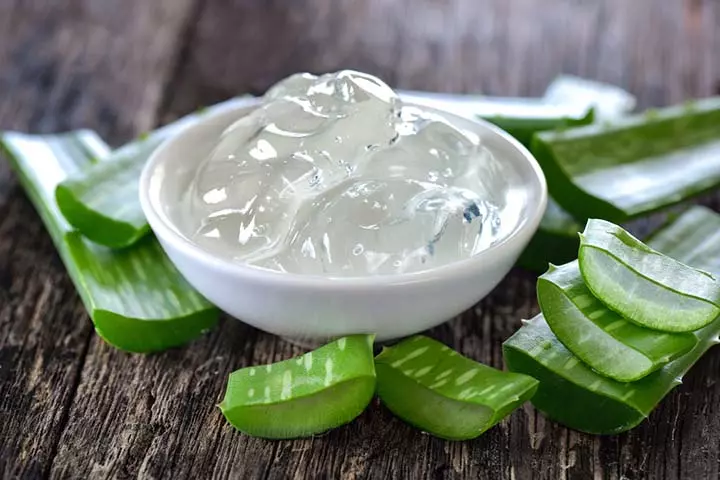
Use aloe vera gel to all those itchy and irritated skin areas soon after a shower. It might soothe and reduce inflammation (9). The aloe vera gel layer may protect the skin and prevent any damage when you tend to scratch on the stomach.
4. Cold compress
Apply a cold compress on your tummy with a flannel or washcloth soaked in cold water to reduce the itchy sensation (10). You may also use it in addition to oatmeal or baking soda bath.
5. Moisturize
Dab a little moisturizer that is gentle and fragrance-free. Applying it frequently could provide temporary relief from itching (3). For better results, dermatologist Dr.Shilpi Khetarpal suggests, “Pat dry after your lukewarm shower and apply the moisturizer within three to five minutes. That helps trap the water in your skin (22).”
6. Coconut oil

Apply the oil on the itchy belly throughout your pregnancy to mitigate dryness and itchiness.
7. Apple cider vinegar
It is believed that applying some apple cider vinegar on the itchy tummy might help in relieving irritation and dryness. However, there is insufficient evidence to prove this remedy is effective for itchy skin. In fact, Dr.Khetarpal opines, “Vinegar is acidic and can actually make things a lot worse (22).”
8. Cocoa butter
Cocoa butter is excellent for dry, stretched skin and is widely available at drugstores. You can apply cocoa butter on your belly to keep the skin moisturized and avoid stretch marks, which can cause an itchy belly. For best results, use cocoa butter in the morning after your shower and at night before going to bed (11).
Over-The-Counter Products For Itchy Belly
1. Oil-based moisturizers
The products are believed to be ideal for an itchy belly as they could be easily absorbed into your skin. You might get them at any beauty aisle or drug store. You may also consider using safe oil-in-water emulsions (emollients), such as an aqueous cream with menthol, to get some relief (3).
2. Calamine lotion
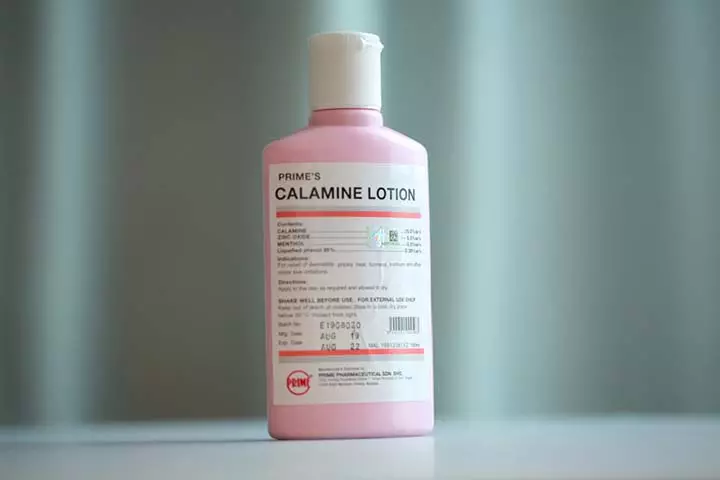
You may apply small amounts of calamine on the itchy stomach several times a day. Calamine contains zinc carbonate, zinc, and iron oxides, which may help relieve itchy skin (11).
3. Vitamin E lotion
You may prevent itching during pregnancy by applying vitamin E lotion or capsule oil, available at local drug stores (13).
4. Corticosteroids and antihistamines
If you have cholestasis, your doctor might prescribe antihistamines to alleviate itching caused by the condition. Topical corticosteroid creams, like hydrocortisone, may be prescribed to manage itching (10). Do not use antihistamines or corticosteroids without a doctor’s advice. Your doctor will take the potential benefits and risks of medication into focus and guide you through a treatment course accordingly to ensure your and your unborn baby’s safety (14).
In addition to the home and OTC remedies, you may take some precautions to prevent an itchy belly.
Can You Prevent An Itchy Belly During Pregnancy?
While you may not be able to prevent the onset of itching, you could take measures to reduce or prevent the itchiness from aggravating. Adopt the following steps:
- Avoid hot water baths or showers as they may trigger pruritic abdomen or itchiness. Instead, use warm water for bathing.
- Do not use soaps and gels with a strong fragrance, as they lead to dry skin. Use mild soap or shower gels that are gentle on the skin.
- Wear loose cotton clothing that is clean and dry. Tight and wet clothes may rub against the skin affecting the dryness and cause itchiness.
- Do not stay in the sun or hot weather as that might dry the skin, leading to maternal itchiness. Also, the UV rays from the sun are known to aggravate the rashes on the dry skin.
- Moisturize your skin frequently and adequately. Use good moisturizers that have a neutral pH.
- Avoid being in the AC for long periods as that too might dry your skin and lead to itchiness and irritation.
- Drink enough water (about eight to ten glasses a day) as it hydrates your body and moisturizes your skin naturally.
 Quick tip
Quick tipFrequently Asked Questions
1. Is it okay to scratch my belly while pregnant?
Gentle scratching once in a while is unlikely to cause any issues. However, intense scratching due to prolonged itchiness of the belly’s skin may increase the risk of secondary lesions, which may worsen the itch (15).
2. Can my baby feel me scratch my belly?
A baby may feel and respond to your hand’s movement on your belly after 26 weeks (16). Therefore, the baby may feel you scratch the belly after the 26th week of pregnancy.
3. How do I avoid stretch marks during pregnancy?
Stretch marks may not always be avoidable. Nevertheless, you may reduce their severity by eating foods high in vitamins E and C and zinc, exercising regularly, and keeping your skin hydrated with pregnancy-safe moisturizers (17).
4. Is itching a symptom of preeclampsia?
Lauren Thayer, a registered nurse from Olathe, Kansas, says, “HELLP syndrome, a severe form of pre-eclampsia, can affect the liver, leading to itchy skin. This emphasizes the importance of informing your doctor about any new symptoms, including itching, so they can assess the situation and determine its severity.”
Stretching of abdominal skin due to a growing uterus can cause an itchy belly during pregnancy. Most pregnant women experience severe belly itching in the last trimesters since the skin stretches more at this time. Changes in hormones can also be a reason for skin itching, especially in the early trimesters when the skin is not too stretched. Although belly itching is normal in pregnancy, do not hesitate to seek medical care in extreme cases since the itching could also be due to other conditions such as cholestasis of pregnancy.
Infographic: What You Need To Know About Itchy Belly In Pregnancy?
Itching in pregnancy can be experienced for various reasons ranging from regular changes in the hormonal levels to liver problems requiring medical attention. Read through the infographic to learn some facts about itchy belly in pregnancy that may help you make the right decision. Illustration: Momjunction Design Team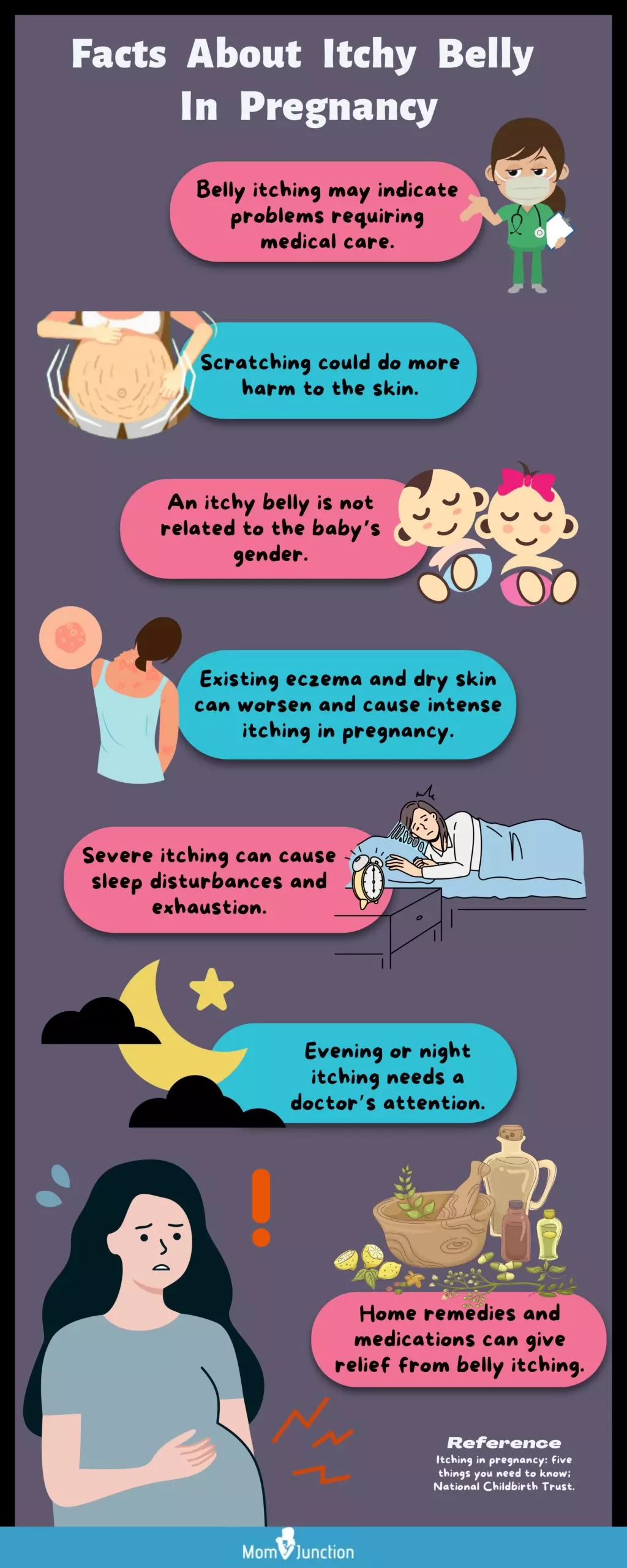
Illustration: Home Remedies To Deal With Itchy Belly During Pregnancy

Image: Stable Diffusion/MomJunction Design Team
Are you confronted with an irksome pregnancy rash? Seek solutions and respite in this invaluable video, elucidating the nature of the rash and its alleviation.
Personal Experience: Source
MomJunction articles include first-hand experiences to provide you with better insights through real-life narratives. Here are the sources of personal accounts referenced in this article.
i. How to Overcome the Struggles of Pregnancy.https://medium.com/illumination/how-to-overcome-the-struggles-of-pregnancy-e181c1ccfee9
References
1. Skin and hair changes during pregnancy; U.S. Department of Health and Human Services National Institutes of Health
2. The Second Trimester; University of Rochester Medical Center
3. Itching and intrahepatic cholestasis of pregnancy; NHS
4. Amanda Oakley; Polymorphic eruption of pregnancy; DermNet New Zealand (2017)
5. Silonie Sachdeva; The Dermatoses Of Pregnancy; Indian J Dermatol (2008)
6. Wolf Y et al.; Impetigo herpetiformis during pregnancy: case report and review of the literature; Acta Obstet Gynecol Scand (1995)
7. Kurtz ES and Wallo W; Colloidal oatmeal: history, chemistry and clinical properties; J Drugs Dermatol (2007)
8. Itching Relief; University of Wisconsin Hospitals and Clinics Authority (2019)
9. Meika Foster et al.; Chapter 3 – Evaluation of the Nutritional and Metabolic Effects of Aloe vera; Herbal Medicine: Biomolecular and Clinical Aspects. 2nd edition (2011)
10.Itching; U.S. Department of Health and Human Services National Institutes of Health (2015)
11.6 skin problems that can develop during pregnancy; UTSouthwestern Medical Center
12. Mrinal Gupta et al.; Zinc Therapy in Dermatology: A Review; Dermatology Research and Practice; Hindawi Journals
13. Mohammad Abid Keen and Iffat Hassan; Vitamin E in dermatology; Indian Dermatol Online J. (2016)
14. Itching during pregnancy; Pregnancy, Birth and Baby
15. Biplov Adhikari et al.; Pruritus Gravidarum; StatPearls (2022)
16. Bonding with your baby during pregnancy; Pregnancy, Birth and Baby’s
17. What Can Be Done To Prevent Stretch Marks? American Pregnancy Association
18. Pemphigoid gestationis; DermNet New Zealand Trust.
19. Itching in pregnancy: five things you need to know; NCT
20. Michael Fong et al.; Pemphigoid Gestationis; StatPearls (2024).
21. Cholestasis of Pregnancy; Cleveland Clinic
22. Home Remedies for Itchy Skin; Cleveland Clinic
Community Experiences
Join the conversation and become a part of our nurturing community! Share your stories, experiences, and insights to connect with fellow parents.
Read full bio of Dr. Shashwat Jani
- Lauren Thayer is a registered nurse with over nine years of experience in various fields including pediatrics, rehabilitation, and informatics. She graduated from Graceland University and works at Children's Mercy Hospital, Kansas.
 Lauren Thayer is a registered nurse with over nine years of experience in various fields including pediatrics, rehabilitation, and informatics. She graduated from Graceland University and works at Children's Mercy Hospital, Kansas.
Lauren Thayer is a registered nurse with over nine years of experience in various fields including pediatrics, rehabilitation, and informatics. She graduated from Graceland University and works at Children's Mercy Hospital, Kansas.
Read full bio of Rebecca Malachi
Read full bio of Swati Patwal
Read full bio of Aneesha Amonz







